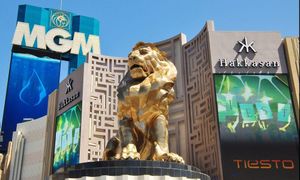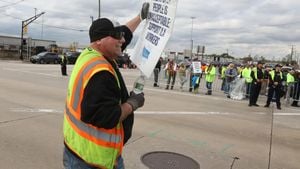Simultaneous elections are once again making waves in Indian political circles, sparking intense discussions and disagreements. The notion suggests holding Lok Sabha and state assembly elections at the same time, with the idea aimed at increasing efficiency and minimizing costs. Recently, Prime Minister Narendra Modi threw his weight behind this proposition, emphasizing its potential to strengthen democracy and streamline the electoral process.
Modi championed the "One Nation, One Election" slogan during his speech on National Unity Day, which also commemorated the birth anniversary of Sardar Vallabhbhai Patel, India's first Deputy Prime Minister and Home Minister. He argued this system could maximize the country's resources and keep the political momentum alive for achieving developmental goals. He claimed, "We are now working toward One Nation, One Election which will strengthen India's great democracy, give optimum outcome of India's resources...the country will gain fresh momentum in our dream of achieving developed India."
Nevertheless, this proposal meets staunch opposition from various political factions. Mallikarjun Kharge, the president of the Congress Party, debunked the feasibility of simultaneous polls just hours after Modi's advocacy. He pointedly stated, "What PM Modi has said, he will not do it. Because when it (simultaneous election) come to Parliament, he has to take everybody's confidence, then only this will happen. This is impossible." Kharge's skepticism reflects concerns among opposition leaders who argue the approach undermines India's democratic framework by potentially minimizing unique regional issues during elections.
This debate isn't new; it revisits discussions fueled by the Kovind committee's recent report, which the Union Cabinet approved last month. The committee suggested practical measures for implementing simultaneous elections, laying the groundwork for this idea to possibly materialize sooner than later. The report offers various proposals, aiming to pave the way for what could turn out to be one of the most significant shifts in how India conducts its elections.
While BJP officials maintain momentum for this shift, the opposition, predominantly led by Congress, seems entrenched on the opposite side. Discussions on whether it truly benefits or disrupts democracy recur, posing challenging questions about representation and accountability. Critics worry about the potential dilution of regional voices if multiple elections were harmonized.
Facing these intensifying discussions, political stakeholders will have to assess the logistics and voter sentiment surrounding this proposal, which remains under scrutiny during India's vibrant democratic exercise. With state assembly elections often reflecting local issues and sentiments, the real challenge remains convincing voters of the benefits of this sweeping electoral change.
For many citizens, the prospect of simultaneous polling might seem appealing due to the perceived reduction of election fatigue and costs. Many may welcome the idea of fewer trips to the ballot box, with hopes of more focused governance from elected officials. Still, others fear this approach could lead to neglect of local matters overshadowed by national narratives.
On another front, as political discussions heat up over elections, the nation grapples with its smog-filled skyline following the recent Diwali celebrations. Reports indicate significant declines in air quality levels across various regions, painting a picture of pollution levels exacerbated by firecracker usage during the festive season.
With some areas registering air quality index (AQI) levels above 900, health officials urge residents to prioritize safety and minimize outdoor activity until the air clears up. The sight of citizens wearing masks and limiting outdoor time is now commonplace, prompting calls for reevaluated policies surrounding pollution control during festivals.
While internal politics and immediate health crises dominate headlines, businesses also reflect on how soon they'll witness impacts from political decisions. Analysts, investors, and entrepreneurs keep their eyes peeled on the economy's ebb and flow, weighing the potential ripple effects of simultaneous elections.
The dialogue surrounding elections, pollution, and economic factors cocontinuesto form part of India's narrative. Leaders from various sectors are called to make decisions based on collaboration and consideration, aiming for long-term sustainability both politically and environmentally.
Whether figuring out how to tackle pollution or adapting to electoral changes, the stakes remain high for India's diverse population. The path forward remains uncertain, yet the discussions initiated now may dictate how India will function and thrive tomorrow.



